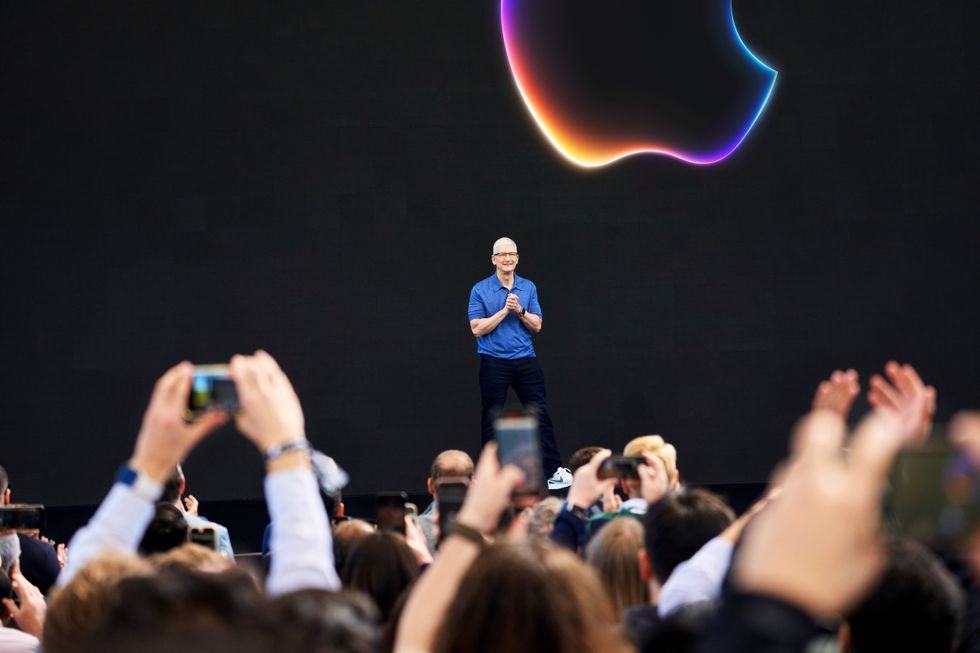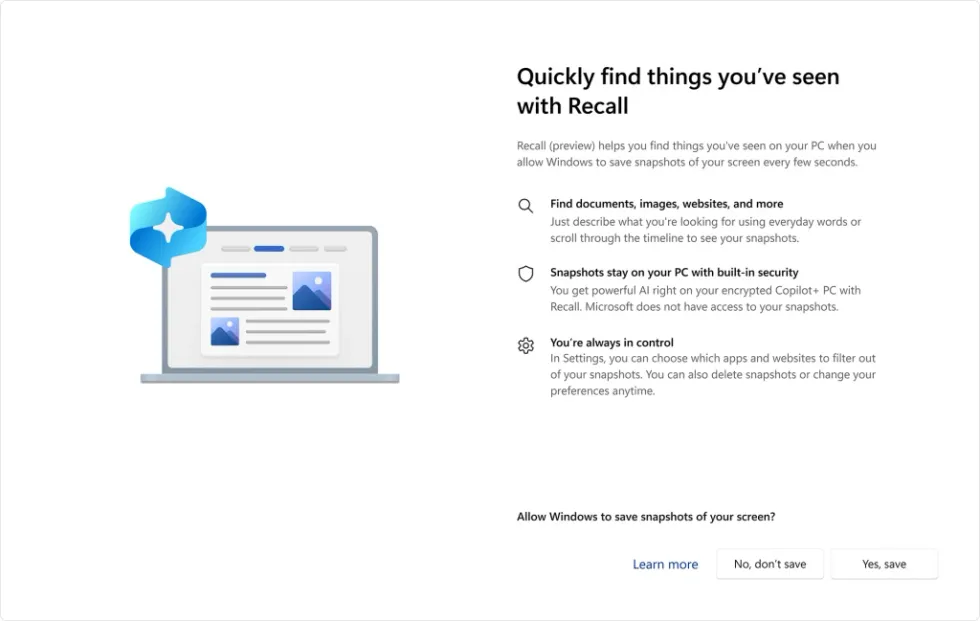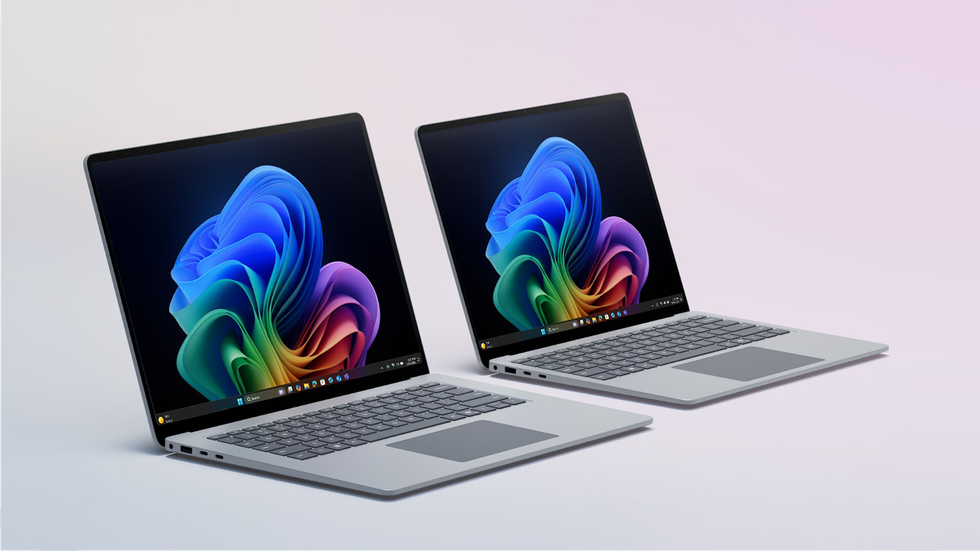Tech
Apple ruthlessly mocks Microsoft over delayed Recall feature that will screenshot everything on your PC

It’s been a rough few weeks for Microsoft. The US company announced a new category of Windows 11-powered devices, known as Copilot+ PCs, which boast exclusive features, including real-time translation for video calls, improved photo editing, and a photographic memory known as Recall.
Originally scheduled to launch this week with the Surface Laptop 7 and Samsung Galaxy Book 4 Edge, Recall will take thousands of screenshots — or “snapshots” as Microsoft refers to them — of everything on-screen every hour.
Microsoft uses on-device Artificial Intelligence (AI) to transcribe text from webpages, Word documents, PDFs, handwritten notes, and everything else displayed on-screen on your PC so that everything is instantly searchable. For example, if you know you were looking at flights to Spain in the last month — you could search for the destination to find the exact webpage.
Recall is the headline feature of this slate of Copilot+ PCs, which lets you scroll back through everything that has happened on your Windows 11 machine and jump back in time with a click. Everything is searchable as AI has trawled through the images and text on-device
MICROSOFT PRESS OFFICE
With a single click, Windows 11 will summon the document, picture, video or webpage to pick up where you left off. You can also scroll back in time through the screenshots, which are captured hundreds of times every hour and can be stored for months at a time.
Recall has triggered a storm of controversy since its announcement. An ex-Microsoft engineer branded the feature as a “disaster” when he revealed that transcriptions of everything on-screen, including bank details, sensitive text messages, and more stored in a plain text document that could be viewed by anyone with access to your PC.
The UK data protection watchdog has confirmed that it’s “making inquiries” with Microsoftand billionaire SpaceX CEO Elon Musk urged millions of followers on X to ditch the feature.

Apple CEO Tim Cook on-stage ahead of the WWDC 2024 keynote, which included a bevy of announcements around Artificial Intelligence, including new photo editing and writing tools, as well as improvements to Siri to make the chatty AI assistant more useful
APPLE PRESS OFFICE
Asked by technology blogger John Gruber about the storm surrounding the Recall feature: “Hypothetically speaking, let’s say there’s another company that makes desktop operating systems and they see AI as the bright future.
“And they want to power AI PCs and introduce a feature that could recall everything that was on your screen every five seconds and then it turns out the first version they shipped is shipping the database with all of the text that was on your screen all of the time in a plain text database on your start-up drive — hypothetically speaking. Is that frustrating to you that it plays into the consumers’ worst fears about this stuff?
“Is it frustrating to you as you’re building out features that you’re trying to build trust in?”
“Are we frustrated by the failings of our competitors? Is that what you’re saying?,” Greg Joswiak replied in mock disbelief. “The answer is ‘no’.”
Craig Federighi, a Senior Vice President at Apple who oversees all software development, jokingly adds: “Heartbreaking”.

Responding to the controversy around Recall, Microsoft will now disable the feature and its “snapshots” by default for all Copilot+ PCs. During the set-up process, the feature will be thoroughly explained to users with the above pop-up, offering them the option to enable Recall
MICROSOFT PRESS OFFICE
By crunching the data on the chipset inside your iPhone, no sensitive data will be beamed over the internet and you won’t need to worry about using any mobile data. This will dramatically cut the number of iPhone models that can take advantage of AI features in iOS 18. When Apple does need to lean on the beefier processing power of server farms, it has created bespoke facilities for Apple Intelligence powered by the same M-branded chipsets inside its latest MacBook Air and other Mac models, known as Private Cloud Compute.
Like Apple, Microsoft was keen to stress the importance of on-device processing for its Recall feature — one of the reasons that its flashy new Windows 11 features will be limited to a handful of devices with a chipset from US manufacturer Qualcomm. However, as demonstrated by ex-Microsoft engineer Kevin Beaumont, “stealing everything you’ve ever typed or viewed on your own Windows PC is now possible with two lines of code” due to the vulnerabilities in the way that Recall stored data on the hard drive.
The security expert shared a lengthy blog post criticising the feature and creating a free tool that would allow anyone to see a comprehensive catalogue of everything stored by Recall.
The revelation forced Microsoft to make a number of changes to Recall.
“Even before making Recall available to customers, we have heard a clear signal that we can make it easier for people to choose to enable Recall on their Copilot+ PC and improve privacy and security safeguards,” admitted Pavan Davuluri, Corporate Vice President of Windows and Devices, in a new blog post.
“Our team is driven by a relentless desire to empower people through the transformative potential of AI and we see great utility in Recall and the problem it can solve. We also know for people to get the full value out of experiences like Recall, they have to trust it. That’s why we are launching Recall in preview on Copilot+ PCs – to give customers a choice to engage with the feature early, or not, and to give us an opportunity to learn from the types of real world scenarios customers and the Windows community finds most useful.”
To mitigate concerns around Recall, Microsoft has promised:
- Disable Recall by default — you’ll now have to manually switch on the functionality during the set-up process of your Copilot+ PC. This will “give people a clearer choice to opt-in to saving snapshots using Recall,” Pavan Davuluri explains
- Before making any changes to Recall, you’ll need to enrol with Windows Hello using a fingerprint scanner, PIN, or facial recognition on your PC. Not only that but “proof of presence is also required to view your timeline and search in Recall,” Microsoft says.
- Addressing concerns flagged by Kevin Beaumont’s explosive blog post, “just in time” decryption will unlock your database of screenshots when your identity is checked with Windows Hello, “so Recall snapshots will only be decrypted and accessible when the user authenticates”.
- The entire search index database will now be encrypted to keep users’ data safe
 Recall and a number of other AI features will be exclusive to Windows 11 running on so-called Copilot+ PCs, including the newly-announced Surface Laptop 7th Edition, pictured above MICROSOFT PRESS OFFICE
Recall and a number of other AI features will be exclusive to Windows 11 running on so-called Copilot+ PCs, including the newly-announced Surface Laptop 7th Edition, pictured above MICROSOFT PRESS OFFICE
By default, Recall will stop taking snapshots when you’re using a private browsing mode in your web browser, like Incognito Mode in Google Chrome.
Microsoft has admitted that it needs more time to implement and test all of these tweaks to Recall, so it will not be shipping Recall with the first range of Copilot+ PCs this week. There’s no revised launch date, but given how controversial the functionality has proven to be… it could be some time before Microsoft is confident enough to roll out Recall to millions of PC owners worldwide.
LATEST DEVELOPMENTS
“We are adjusting the release model for Recall to leverage the expertise of the Windows Insider community to ensure the experience meets our high standards for quality and security,” Microsoft confirmed the delay in an update to a company blog post.
“When Recall (preview) becomes available in the Windows Insider Program, we will publish a blog post with details on how to get the preview.”
With the introduction of Copilot+ PCs, there will be two distinct types of Windows 11 devices — those with cutting-edge AI features and those with the standard bundle of features available on desktop PC, tablets and laptops that don’t meet the Copilot+ PC certification. The latter is the version of Windows 11 that will be available to Windows 10 users who take advantage of the free upgrade.
Windows 10 will lose support next year, cutting out millions of users from critical bug fixes and new features — unless they pay an annual fee to Microsoft.


)






